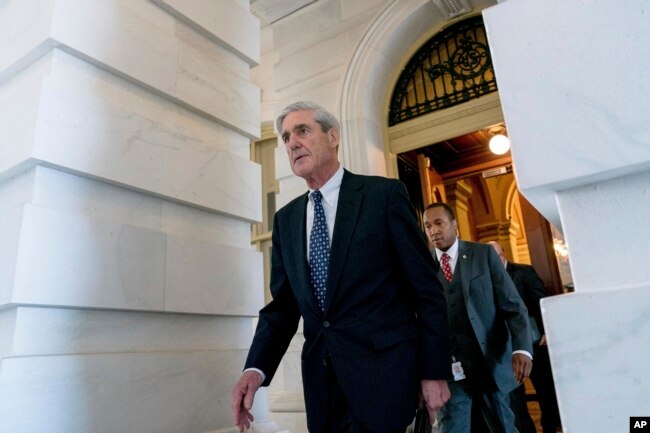Rosenstein was responsible for Mueller’s appointment in May 2017 and has overseen much of his day-to-day work since then. He is expected to step down next month, and his speech Monday on the rule of law at the Center for Strategic and International Studies is likely one of his final public appearances before his departure, VOA news reports.
The decision on what to do with Mueller’s findings will ultimately fall to new Attorney General William Barr, who has said he wants to make public as much as he can. He has said he plans to produce his own report after receiving a confidential one from Mueller.
At other points in his speech, and in a question-and-answer session that followed, Rosenstein appeared to allude to the Justice Department’s protocol of not disclosing negative information about people it does not have enough evidence to charge or that, for other reasons, it decides against prosecuting.
Justice Department legal opinions argue that a sitting president cannot be indicted, suggesting prosecutors would not be able to pursue charges against Trump even if they uncover wrongdoing. That could mean investigators do not make public information they collected on Trump.
“The guidance I always gave my prosecutors and the agents I worked with during my tenure on the front lines of law enforcement were if we aren’t prepared to prove our case beyond a reasonable doubt in court,” Rosenstein said, “then we have no business making allegations against American citizens.”
Rosenstein’s comments stand in contrast to congressional Democrats who are aggressively pushing the idea that Mueller’s full report, plus the underlying documents, should be made public.
The Democrats are pointing to documents Justice Department officials made public following the investigation into Hillary Clinton’s use of a private email server, as well as information Republicans demanded last year during inquiries into the early stages of the FBI’s Russia investigation.
The documents given to Congress included sensitive, sometimes classified, information that had traditionally been kept under wraps after closed investigations or during ongoing investigations.
The chairman of the House intelligence committee, Adam Schiff, tweeted Monday that “this double standard won’t cut it.”
“For two years, I sounded the alarm about DOJ’s deviation from just that principle as it turned over hundreds of thousands of pages in closed or ongoing investigations,” he said. “I warned that DOJ would need to live by this precedent. And it will.”

